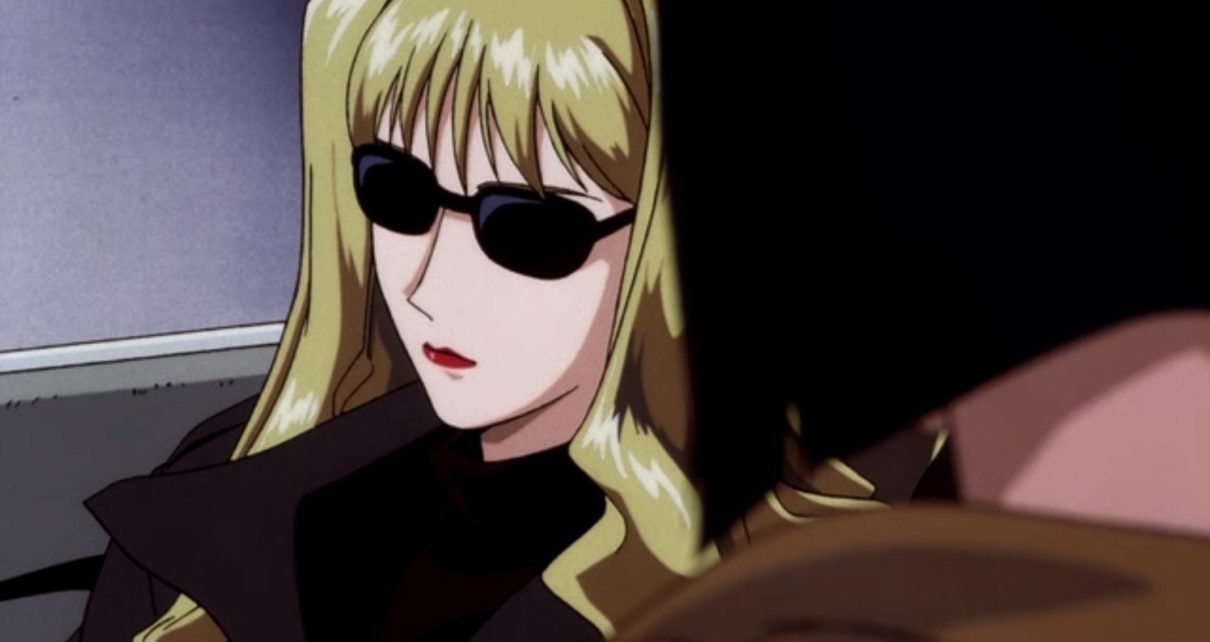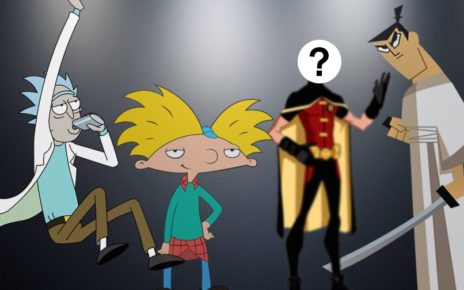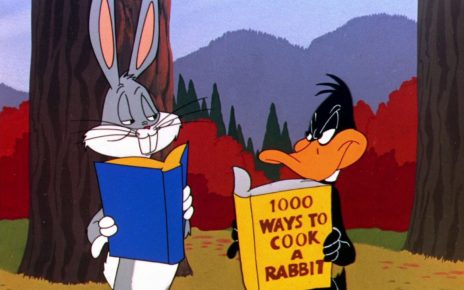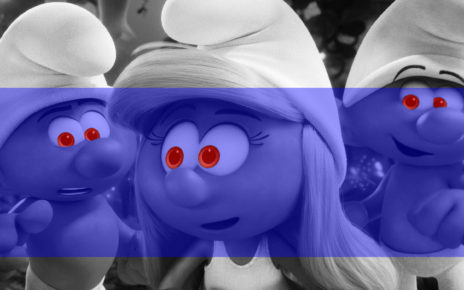Goodnight

For one month, The Dot and Line is publishing essays, interviews, and discussions about each episode of Cowboy Bebop, which turns 20 this April.
You can learn a lot from scrupulously examining an image. I have hit pause on the Cowboy Bebop episode “Ballad of the Fallen Angels” numerous times, particularly throughout the montage that kicks in as soon as Spike’s limp body flies through the opulent stained glass window of a cathedral, gracefully careening through the air as the piano notes of the song“Green Bird” play.
I hit pause on Julia. And this is what I see.
Here’s this bright, blonde femme fatale in a black leather jumpsuit, smoking a cigarette, watching Vicious—a man we know to be extremely dangerous—play pool as if she doesn’t look like she could beat him at the game in under 7 minutes. And judging by her demeanor and the badass belt around her anime-perfect hips, I’m going to go ahead and say that she is pretty clearly involved with the Red Dragon syndicate, in a very deadly way.
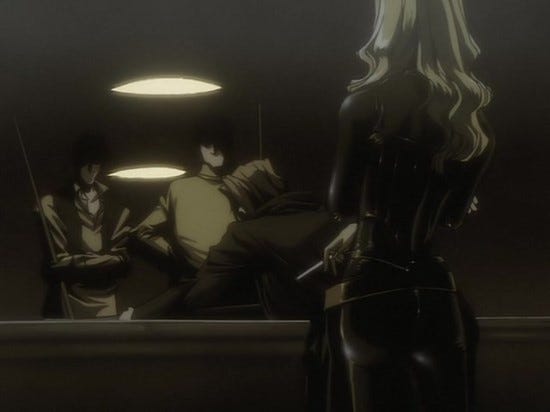
The show’s fifth session dives into Spike’s intimate history, and this history drives his character arc in key episodes throughout the rest of the series. Throughout “Ballad,” the “Jupiter Jazz” two-parter, and “The Real Folk Blues” two-part finale, Julia’s behind the wheel the entire time, always in the back of Spike’s mind but never quite close enough until it’s all too late.
“Be careful when you’re with that woman.” –Vicious, “Jupiter Jazz, Pt. 2”
Even though we don’t even physically see her until an episode before her tragic end, after a recent binge rewatch of the entire series, I began to notice that Julia is not, in fact, absent from the show at all. She’s just more like an invisible character. She haunts Spike’s storyline in unexpected and elusive ways, mirroring that same omnipresent, unexpected feeling that pops up throughout the show.
When you watch Cowboy Bebop, there’s a lot of things a viewer might feel like the show should have done. First and foremost, the bounty hunting crew should be catching bounties, but we rarely, if ever, see the Bebop crew successfully capture, turn over, and get money for, any of the numerous marked men and women they pursue. Faye should be searching for her family, but her process toward that goal is circuitous and ultimately complicated, its end result not what she expected. Jet should just get a new arm through reconstructive surgery and get past his many hangups. Ed should reunite with her family (and ultimately starts on that path before the end). Spike should be finding ways to live his life and move on from his past with Julia, Vicious, and the Red Dragons. At the very least, this crew comprised of broken people should be able to settle in to the weird little family life they’ve created, but of course none of those things happen.
It’s the same for the show’s invisible character, Julia. She just doesn’t do what’s expected.
“Who is this Julia?” “I don’t know. Got some kind of hold on Spike. That’s all I can tell you.” Faye & Jet, Jupiter Jazz, Pt. 2
This leather-clad (presumed) killer appears again via flashback, but this time, she’s dressed like the really nice mom of your next-door neighbor or grade-school classmate. Is this the same woman we just saw holding her own with the syndicate boys in a pool hall? In this particular flashback scene, we briefly see how she will fall for Spike while nursing him back to health after he happens to collapse at her door. It’s clear from the aforementioned flashback that she was previously with Vicious, which is surprising, because what kind of a woman would date both Vicious and Spike? She defies expectations yet again when she’s presented with a choice. Two men expect something of her — one says she must kill or be killed. The other begs her to run away with him. She does none of the above. Instead, she flees, and for three years, she lives her own life.
And I imagine she might have been living her best life. Clearly she wasn’t a cowboy, since later, in one of the final episodes, she asks Faye where cowboys hang. She has a steady apartment (complete with anachronistic analog answering machine), and she whizzes around in a slick, red convertible hotrod.
Julia’s invisible hand meddles in major episodes, turning up in ways that are unanticipated. Throughout “Jupiter Jazz,” it’s revealed that Gren, another victim of Vicious’ violent, sociopathic tendencies, met Julia on a lonely, man-infested planet. Gren pulls Spike into another confrontation with Vicious by using Julia’s name as code for a drop meant to be a death trap. It is only when Spike hears her name that he is inadvertently drawn into the fray, looking for his woman.
When Julia finally appears, in the flesh, we get teased with an unanticipated shot at happiness for our forlorn hero, Spike Spiegel. When she listens to the message that launched a thousand bullets through “The Real Folk Blues,” although she initially tries to run, she again triggers Spike’s eventual involvement in the situation by picking up a helpful hitchhiker named Faye. She tells Faye, outright, to give Spike a message to meet her. When running away together doesn’t work, Julia decides to say screw it, and turns to face her past, the same choice that both Spike and Vicious make, bringing an unforeseen cataclysmic end to all three of their intersecting storylines.
And last but not least, none of us—least of all Spike—expected her to die.
When Spike and Julia finally meet in the graveyard, three years late for their original rendezvous, she seems to give voice to the anxieties of the audience, asking Spike one final time for them to run. But when he turns her down and ultimately decides to end things with Vicious once and for all, Julia doesn’t argue. She doesn’t do what we want her to do, or at least what I wanted her to do, which was give Spike a little smack and drag him by the collar to the airport, or hell, even the Bebop, just so that they can finally ride off into the proverbial Mars sunset and live happily ever after.
It’s almost as if she knows how delusional the idea of their happily ever after is, when she utters her final, heart-wrenching words, silent at first, until they resurface as one of Spike’s final thoughts, an important moment of his life flashing before his (fake and real) eyes.
“It was all a…dream.”
“Yeah…just a dream.”
Thanks for reading The Dot and Line, where we talk about animation of all kinds. Don’t forget to for this article and follow us on Twitter and Facebook.


